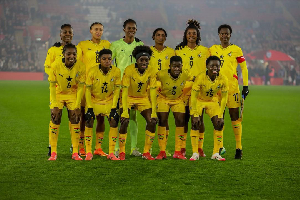“Mr Tawiah, your client must understand that the offence she committed was abhorrent. I am seriously minded to send her to prison today. But I am worried that this would make the situation in the family home worse. Her children will suffer. I am going to give her a chance. Mrs X you will be going home today. But if you do this again, you should prepare for prison”.
These were the remarks of a judge to my client a couple of years back. I remember these words like I heard them yesterday. These words came to mind when I read this morning that Rosemond Brown (also known as Akuapem Poloo) had been sentenced to a period of 90 days imprisonment.
This was following her guilty plea to the charge of publishing obscene material (along with two other charges). I will not use this post to discuss how I personally doubt the constitutionality of this charge. Not to mention the fact that this criminal offence speaks to a time before the social media age. Instead, my anger is directed at what is clearly judicial discretion gone wrong in sentencing Akuapem Poloo to imprisonment.
The exercise of sentencing is one which engages judicial discretion restricted only by very broad statutory limits. In this case, the judge had a discretion to sentence Akuapem Poloo to anything up to three years imprisonment.
This does not mean the judge had to send her to prison. The judge could have imposed a hefty fine; a community service order; a conditional discharge etc. Instead, the judge imposed the most draconian measure of them all – imprisonment!
You see deciding to send someone to jail is a life-changing exercise. In many countries, judges get reports from qualified probation officers before considering whether imprisonment is appropriate. This is because many considerations come into play which are beyond the expertise of a judge.
For instance, what effect would imprisonment have on the well-being/development of her son? Akuapem Poloo is a single mother. This is her first offence. She has pleaded guilty. I’m struggling to see what purpose imprisonment serves in this case and how it is a proportionate response to the facts of the offence in question.
Those who support this hefty sentence argue that this will teach us all a lesson. The judge in this case went to the extent of stating that the posting of nude pictures has become a prevalent issue in Ghana, and this case should serve as a deterrent.
Really? Is this the case that we want to all learn a lesson from? We have criminals wearing suits who get away with daylight robbery every single day. They commit the most heinous crimes. Yet the system turns a blind eye to them. Before we learn lessons, we should fix the system. To be frank, our sentencing regime reflects wider problems in our criminal justice system.
This would have been the perfect case to show how judicial discretion should work. The judge could have imposed a less harsh sentence but made some very strong judicial remarks. Instead, the judge used discretion as a cane.
The person who stands to lose most from this is not Akuapem Poloo – it is her son. Our system has failed Akuapem Poloo and her son. But the truth is: our system fails vulnerable people every day.
Opinions of Saturday, 17 April 2021
Columnist: Stephen Tawiah















